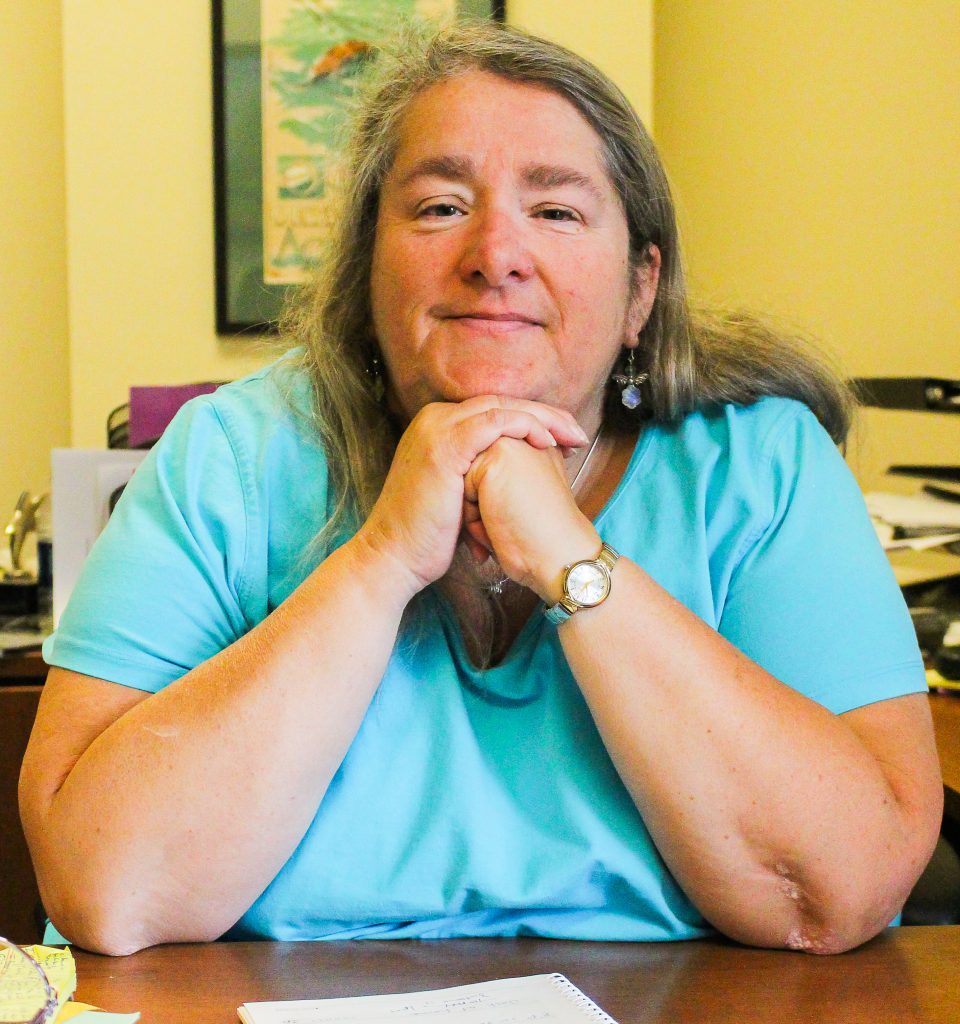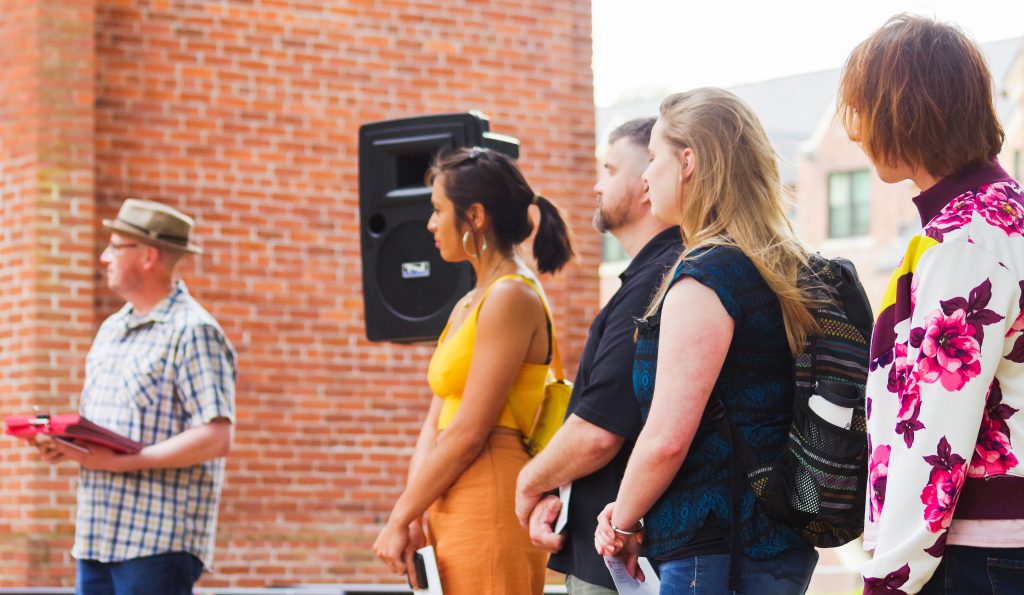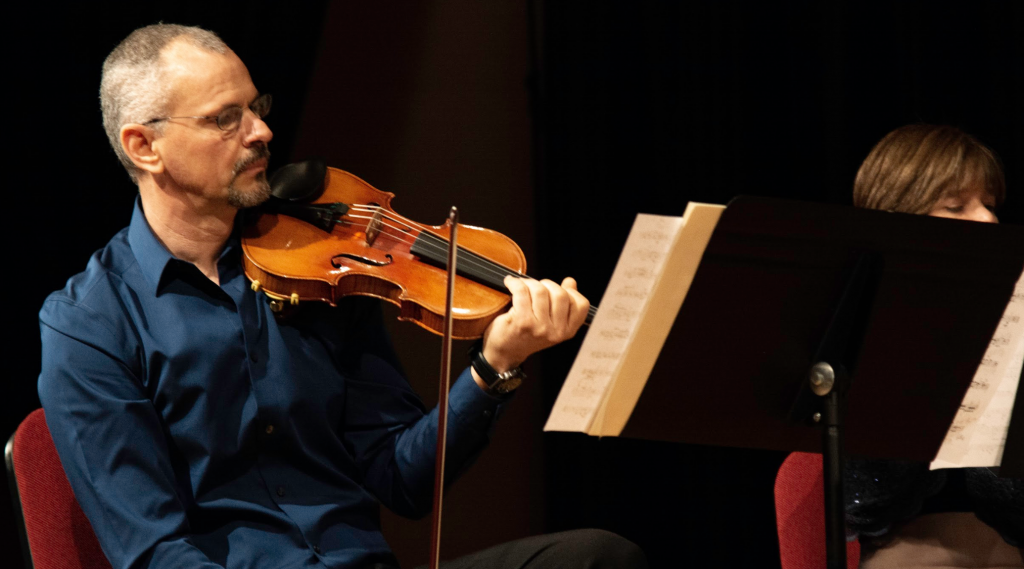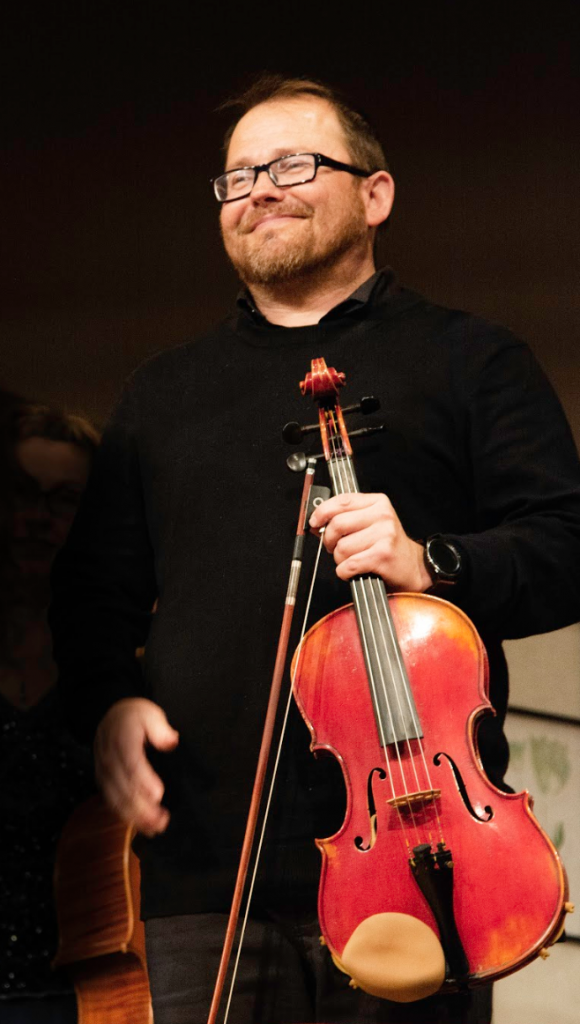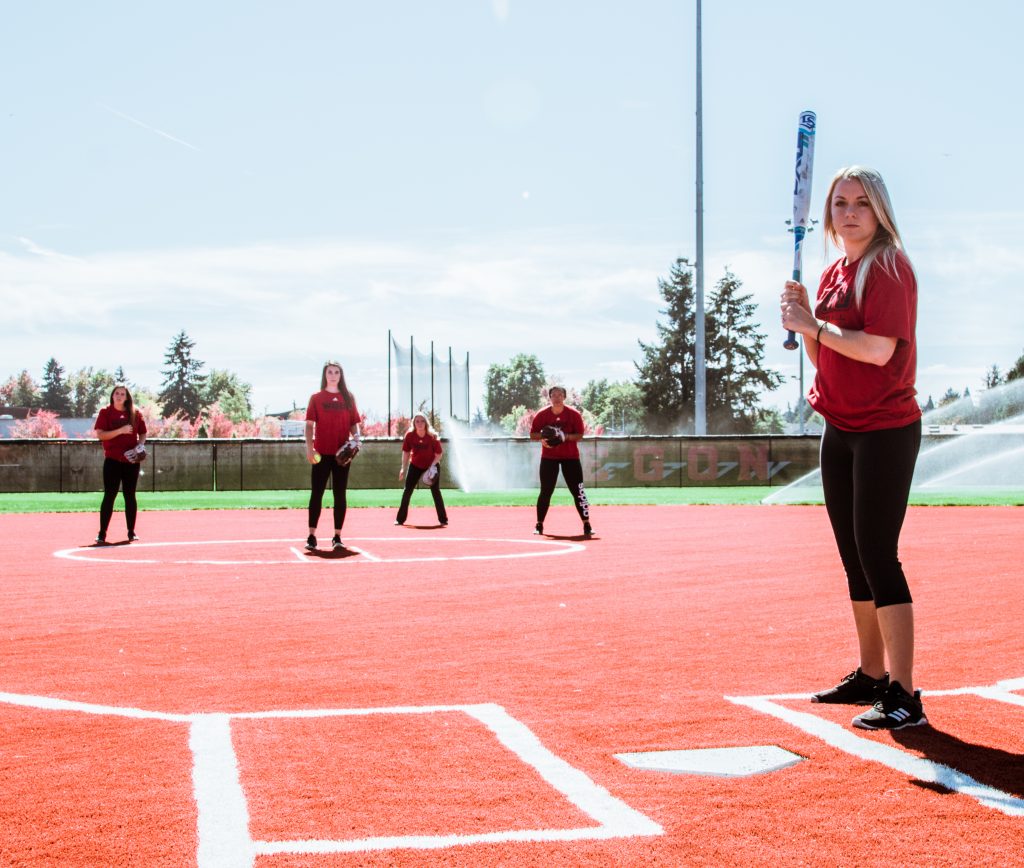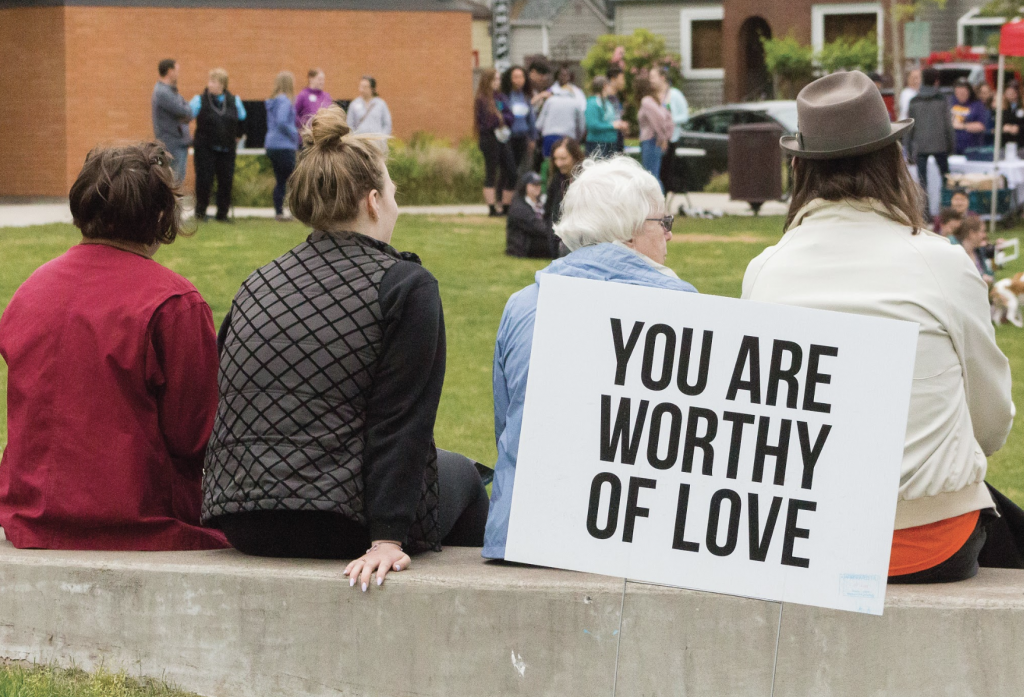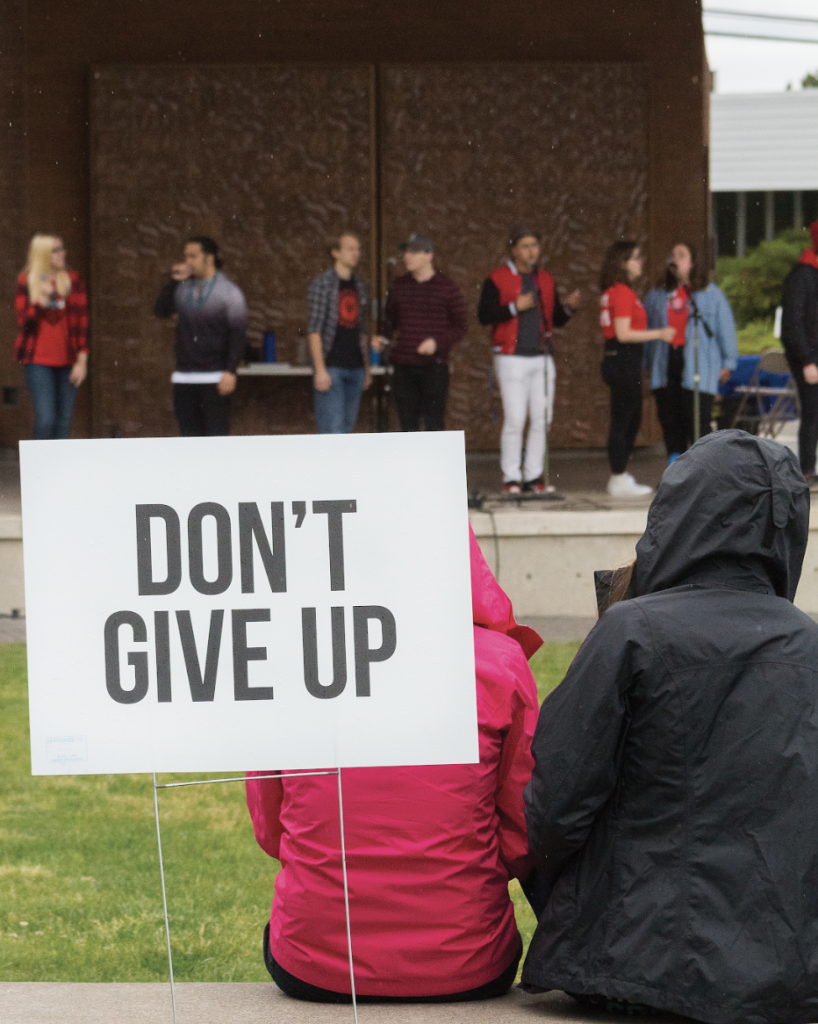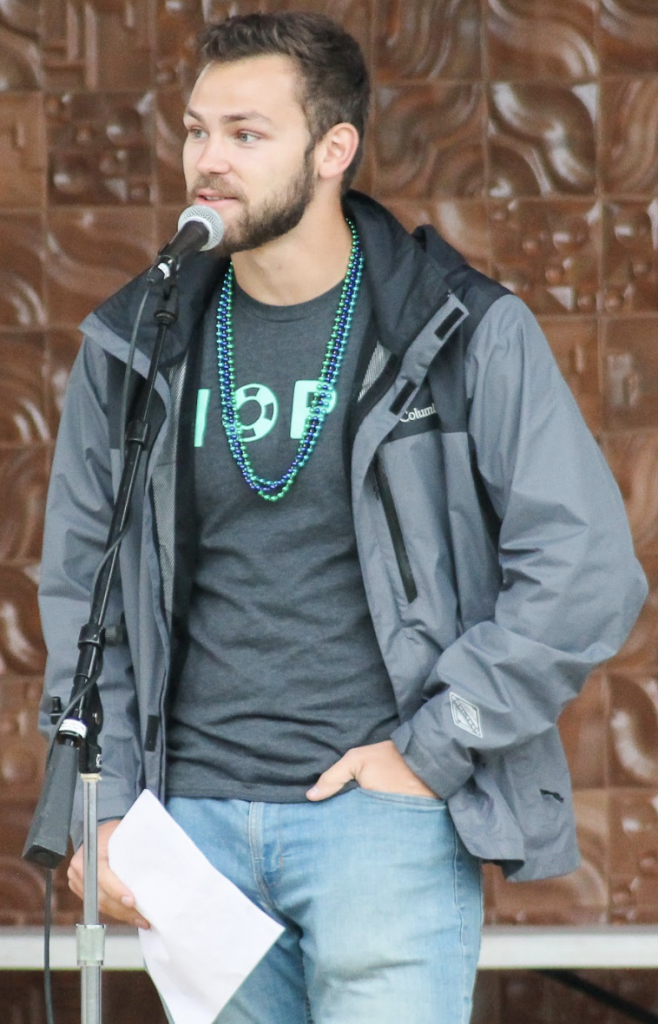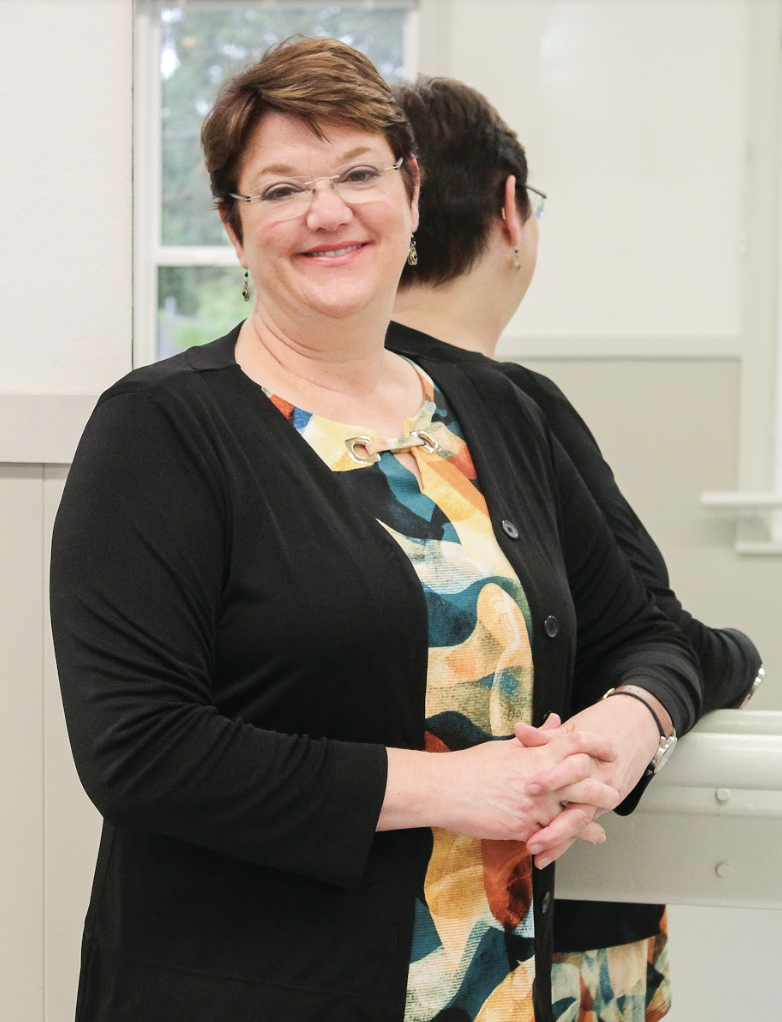
Bailey Thompson | News Editor
In spite of the rain that threatened to spoil the event, Western’s first Out of the Darkness Walk for suicide prevention was a shining example of what can happen when a group of people come together to support a cause that they believe in.
While Out of the Darkness Walks are not new events in general, this one was special because it was the first one that had ever been hosted in Monmouth. Organized by the WOU Wellness Advocacy Group, spearheaded largely by Tim Glascock and Shaylie Pickrell, this event was held on May 17 at Main Street Park.
When people arrived, a number of booths from Western and other local organizations greeted them, offering both their support and resources to attendees. Amongst these groups were WOU Food Pantry, University Housing, Abby’s House, Student Health and Counseling Center and Lines for Life, which is a crisis call center based in Portland.

Kicking off the event, 15 Miles West — Western’s acapella group — performed a number of hit songs as people mingled, visited booths, got registered and picked up their ceremonial beads.
Next, Ryan Price, Oregon and Idaho Area Director for the American Foundation for Suicide Prevention, introduced the featured speaker for the event, a Western Oregon University alumnus named Cody Welty who has shared his story even on platforms as big as NBC’s Today Show.
“It’s really good to be back in Oregon and in Monmouth,” said Welty, a current doctoral student at University of Arizona researching strategies to prevent youth deaths by suicide. “Those of you who do know me probably do know me because of my experience at WOU, either as a writing tutor, a psychology student or hopefully just a friendly face of someone you saw on or near campus.”
Welty then expressed his hope in sharing his story at this event.
“It’s a story of sadness, it’s a story of hope and most importantly it’s a story of recovery. And it’s a similar story to what many of us who are here today may have experienced,” said Welty.
Welty then discussed the way that his connection to suicide began: he was a normal, even successful, high school student who spent years masking the depression that he felt inside. Being a 4.0 student and a three-sport athlete with a supportive family and good friends, he felt that the external image he put out into the world did not match the reality of his health.
“I thought, ‘I’m a man. I can’t talk about how I feel or share this with anyone.’ And so, I shoved it away,” said Welty. “I took all those concerns and pressures and pushed them down somewhere where I could never talk about it.”
From this point, Welty remembers being in a health class and realizing how many of the symptoms of depression and anxiety were things that he had experienced — but he continued to push it down. Eventually, though, this came to a head, and Welty attempted suicide.

“At that point I think I hit my lowest. I felt that I was so much of a failure that I couldn’t even kill myself,” said Welty.
After recovering in the hospital, Welty shared with his parents that he had a new goal.
“I remember telling my family that I wanted to do my best to make sure that there were no other kids like me who felt that they were alone and couldn’t talk to anyone,” said Welty. “Depression doesn’t look like it’s a photo in a textbook. It doesn’t look the same for everyone. I knew it was time to put a face to an illness that they knew about.”
At this point, Welty started going to middle and high schools, sharing his story with kids. And the message that he conveyed to them was the same as the one that he shared at the walk.
“We are not hopeless, we are not powerless and we are not weak,” said Welty. He also impressed upon people that “we can all check on a friend or a loved one. We can all ask for help when we need it… And we can all do our best to help end suicide.”
After his speech, the crowd went through the traditional bead ceremony where people shared stories of different people in their lives who have either struggled with suicide or who have been lost to suicide — partners, children, siblings, parents, self, friends or service member/first responder. With each category, participants were asked to different colors of beads to signify the different connections that they had to suicide, aiming to build a community of support in the process.
At the close, attendees all marched from the park, through Western’s campus and back to the park.
“The walk is really a great time to come together, connect and share your story,” said Price.
Contact the author at howlnews@wou.edu
Photo by Bailey Thompson and Ashlynn Norton




